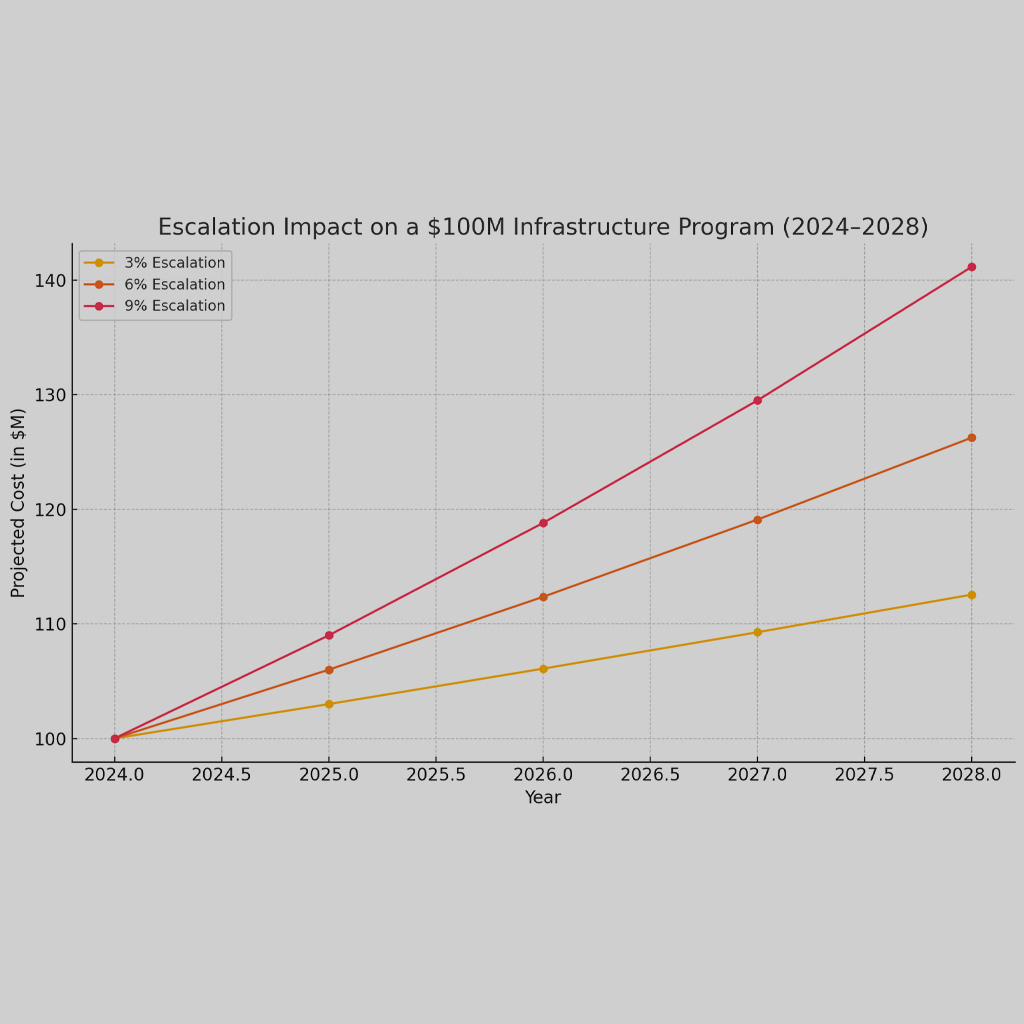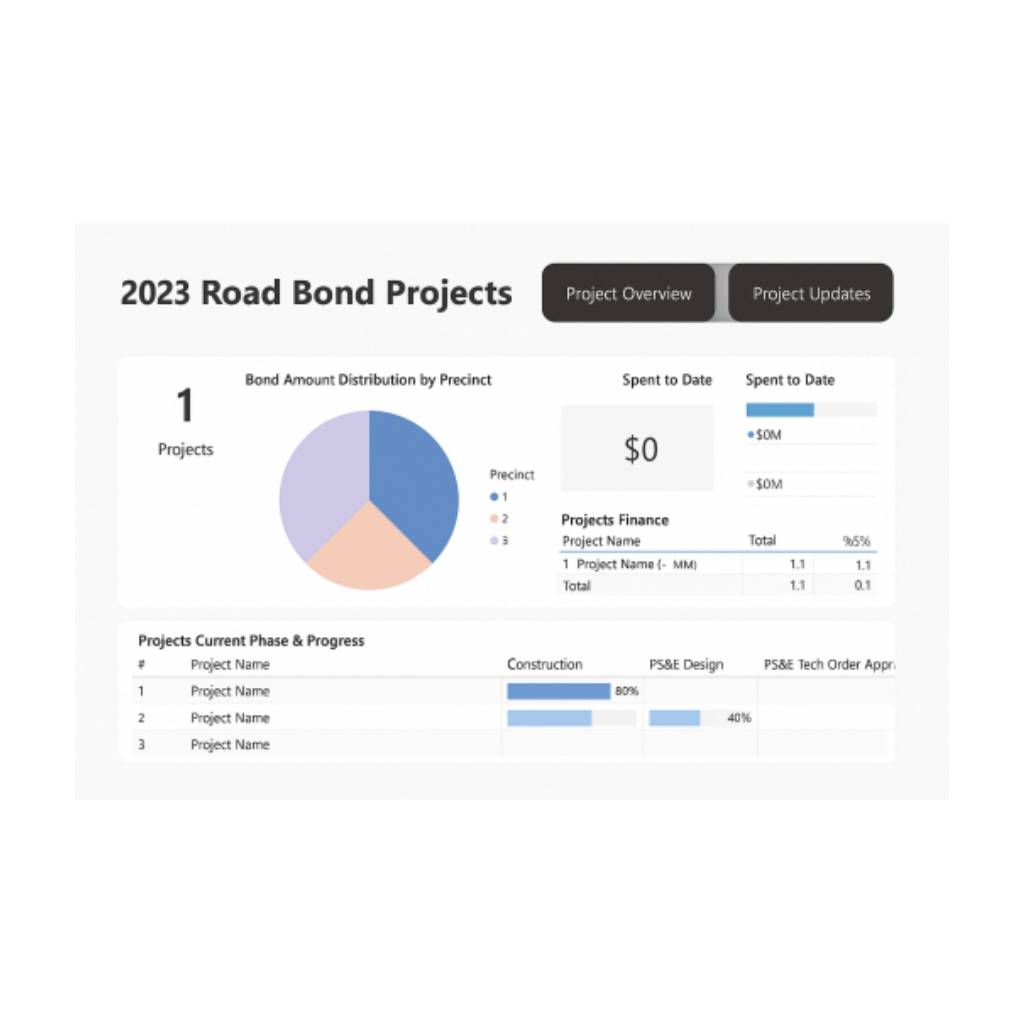In today’s fast-paced world, capital infrastructure projects play a vital role in the growth and development of municipalities and independent school districts (ISDs). These projects require effective management and collaboration between project managers, engineers, and contractors to ensure successful completion. To enhance project performance and deliver projects on time, on budget, and to client expectations, it is crucial to establish a rating system. The city of San Antonio, Texas has already created a new (2023) city law, the responsible bidder ordinance, that allows the city to deny awards to contractors that did not meet expectations. This article explores five key reasons why creating a rating system for project managers, engineers, and contractors is essential for capital infrastructure programs.
Introduction
Capital infrastructure projects encompass a wide range of construction and development initiatives, such as building schools, roads, bridges, and public facilities. These projects involve substantial investments and have a significant impact on the community. By implementing a rating system for project managers, engineers, and contractors, municipalities and independent school districts can maximize project performance and achieve desired outcomes efficiently.
Streamlining Project Selection Process
The first reason why a rating system is crucial for capital infrastructure programs is that it streamlines the project selection process. With a rating system in place, project managers can evaluate the capabilities and track records of potential contractors and engineers. This assessment ensures that only qualified professionals are entrusted with important projects, minimizing the risks of poor performance and delays.
Ensuring Competence and Expertise
By creating a rating system, municipalities and independent school districts can ensure that project managers, engineers, and contractors possess the necessary competence and expertise. A comprehensive rating system evaluates various aspects, including qualifications, experience, technical skills, and past project performance. This evaluation process guarantees that only professionals with proven abilities are chosen, resulting in enhanced project execution and minimized errors.
Promoting Accountability and Quality Assurance
Accountability and quality assurance are critical elements for successful project delivery. A rating system provides a mechanism to hold project managers, engineers, and contractors accountable for their work. By establishing clear performance metrics and benchmarks, the rating system enables project stakeholders to monitor progress and ensure adherence to quality standards. This accountability fosters a culture of excellence and encourages all parties involved to strive for superior project outcomes.
Encouraging Continuous Improvement
Continuous improvement is a key driver of success in any industry. The implementation of a rating system encourages project managers, engineers, and contractors to continuously improve their skills and performance. Through regular assessments and feedback, professionals can identify areas for growth and take proactive measures to enhance their capabilities. This commitment to ongoing development benefits not only individual practitioners but also the overall project performance.
Fostering Collaboration and Communication
Efficient collaboration and communication among project stakeholders are essential for smooth project execution. A rating system facilitates the identification of effective team players and promotes collaboration within the project ecosystem. By recognizing individuals who excel in teamwork, the rating system incentivizes positive interactions and fosters a cooperative work environment. This synergy enhances communication, minimizes conflicts, and boosts overall project productivity.
Conclusion
Creating a rating system for project managers, engineers, and contractors is instrumental in ensuring the success of capital infrastructure programs. By streamlining the project selection process, ensuring competence and expertise, promoting accountability and quality assurance, encouraging continuous improvement, and fostering collaboration and communication, municipalities and independent school districts can significantly improve project performance. The implementation of a rating system serves as a valuable tool in achieving projects that are completed on time, within budget, and meet client expectations. The use of such systems enhances the efficiency, quality, and overall effectiveness of capital infrastructure projects, benefiting both the community and the stakeholders involved.
At Front Line Advisory Group, we provide program management consulting services for capital improvement bonds. We are revolutionizing the construction industry and transforming client expectations by obsessing over the basics of budget oversight, schedule enforcement, compliance, vendor management, and stakeholder communication. Contact us for more info at info@frontlineadvisorygroup.com.
FAQs
- How does a rating system benefit capital infrastructure projects? A rating system ensures that only qualified professionals are chosen for projects, minimizing risks and improving project performance.
- What criteria are considered in the rating system? The rating system evaluates qualifications, experience, technical skills, past project performance, meeting contract requirements, staying on schedule, quality of work, responsiveness, keeping within budget, and closing out projects.
- How does a rating system promote accountability? By establishing clear performance metrics and benchmarks, the rating system holds project stakeholders accountable for their work and adherence to quality standards.
- Can a rating system help in identifying areas for improvement? Yes, the rating system provides regular assessments and feedback, enabling professionals to identify areas for growth and take measures to enhance their capabilities.
- How does a rating system foster collaboration? A rating system recognizes individuals who excel in teamwork, incentivizing positive interactions and fostering a cooperative work environment, leading to improved collaboration among project stakeholders.













